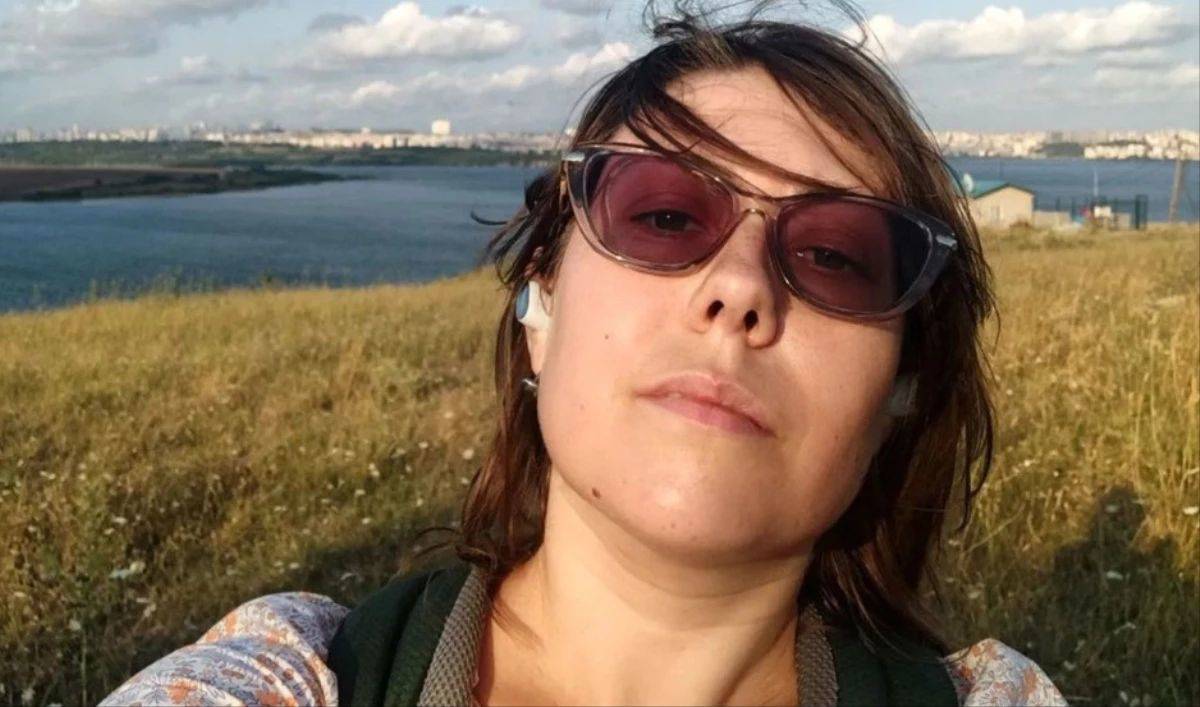Anastasia Yemelyanova (Nastya), a Russian feminist and anti-war activist, was found dead in Erzurum on Sunday, September 24. Her fiancé is currently in custody on suspicion of murder, and his arrest is expected later in the evening.
Nastya was involved in a campaign against domestic violence. Preparations are being made to repatriate her body.
According to information shared by her friends, Nastya came to Turkey in May 2022, following Russia's attack on Ukraine. She was an advocate for peace.
As her friends describe her, Nastya had an extraordinary ability for empathy and a strong sense of justice. She was a feminist and activist who participated in various feminist and activist projects. She was one of the co-authors of the YouTube channel "Feministki pojasnyajut" ("Feminists Explain"), where she and her friends shared videos on feminism and topics like domestic violence.
Nastya was actively involved in movements like "Rodina" (a group of activist artists) and "Vesna." She assisted the "Ryobra Evy" ("Eve's Ribs") project, which provided a safe space for women to come together and feel secure without the presence of men.
She also supported the "Otkrytoe prostranstvo" ("Open Space") project, where activists and artists could organize various activities, from prisoner letter-writing events to supporting homeless women. Nastya worked as an editor on the "Skazki dlya devochek" ("Tales for Girls") project, which was a children's book that told the real-life story of a woman; she also organized letter-writing events in Istanbul to support political prisoners and created her own projects.
Nastya was a versatile expert and social entrepreneur. Before the war, she ran a startup called VegCode, which developed an application that could determine whether a product was vegan based on its barcode.
After the war, she returned to research. Trained as a linguist and experienced in computational text analysis, Nastya joined the Hannah Arendt Research Center to analyze social media's impact on Russian schoolchildren in the context of the war.
However, her efforts did not stop at just one project. Nastya helped raise funds, sought collaborators and partners, and became a founding partner of "Shpargalka" ("Cheat Sheet"), a human rights project for students, parents, and teachers.
According to her friends, Nastya had big plans to make Russia a better place, and she wanted to pursue a master's degree.
After Russia's invasion of Ukraine, her friends, who were already in Turkey, expected her to join them in Istanbul. They found strength in their sisterhood and mutual support amidst the backdrop of the horrific war, but Nastya, who became a part of that strength and love, sadly met her untimely end.
Nastya's friends mentioned that she seemed very happy when she met Nizar. When she decided to move to Erzurum (just a month ago), they trusted her judgment because they had absolute confidence in Nastya. She was a wise and mature woman who always knew what she was doing. She remained in communication, and her messages, including those from Erzurum, did not seem to signal any danger.
On September 21, communication with Nastya was suddenly lost. At first, they were not concerned because they didn't immediately notice that she was not in touch with them or her mother. On Friday, September 22, they initiated a search operation. However, they only learned of her death on September 24.
Receiving the news of Nastya's death was incredibly difficult for her friends. Some of them besieged the Istanbul police station for two days, and their local friends in Turkey continued to call the police stations in Erzurum. Eventually, they shared some information with them, but it was not as detailed as the local media.
The attitude of the Russian consulate was described as terrible. The Erzurum police are saying that they immediately (on September 21) informed the Russian Embassy.
On Saturday, September 23, they called the Embassy, and the consular staff provided very little information and then stopped answering calls. The Russian consulate staff's attitude was terrible. They were told things like "What do you want from us?" with an indifferent tone. When they said, "Nastya's mother cannot call you from Russia," the response was, "That's not my problem, get yourself together, everyone can do it, she's not the only one who can call," and so on.
Nastya's friends also highlighted one of the most important art projects she worked on, known as "Eto ne plakat" ("This is not a poster"). It involved sewing slogans related to anti-war, feminism, and anti-Putin messages onto clothes and accessories. This work was a powerful and beautiful metaphor that expressed the impossibility of standing with a banner on the street in Russia without being arrested and conveyed the monotonous and meticulous work done by activists.
Nastya left some shopping bags she had sewn before moving to Erzurum, asking them to sell them for Russian and Belarusian political prisoners. She was also in the process of embroidering a dress as a gift for her friend. She planned to embroider the words "Воля или смерть" ("Freedom or Death") on it. (EMK/PE)






